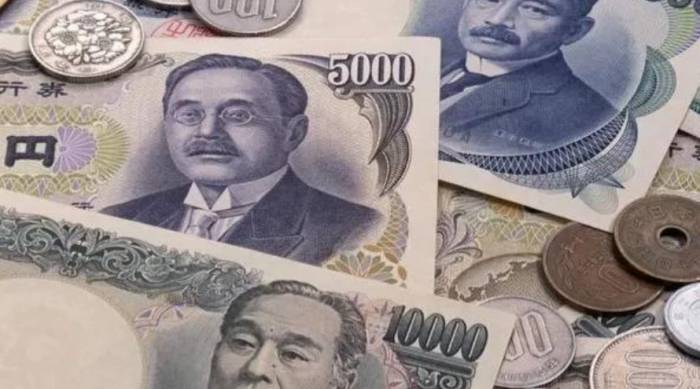Japan's GDP Shrinks Below $4 Trillion for First Time in 30 Years
September 20, 2022, it was reported that:
Japan's GDP, when measured in US dollars, is shrinking. If calculated at an exchange rate of 1 US dollar to 140 Japanese yen, it is projected that Japan's nominal GDP for 2022 will fall below 4 trillion US dollars for the first time in 30 years.
Does this mean that Japan's GDP will soon revert to the level of 30 years ago? What exactly is going on?
As early as the 1990s, following the burst of the asset bubble, the Japanese economy experienced a prolonged stagnation, with housing prices and stock prices also seeing a continuous decline for many years after the crisis.
Let's take a look at Japan's GDP situation over the past decade.
In 1985, Japan's GDP was 1.4 trillion US dollars, second only to the United States.
By 1995, Japan's GDP had reached 5.55 trillion US dollars, at which point its GDP had peaked.
It can be said that at that time, in any country, its economy was extremely fast, even reaching an uncontrollable state.
Yes, an economic bubble emerged.
This was also due to the appreciation of the yen.From 2013 to 2015, Japan's GDP declined for three consecutive years, directly dropping to $4.44 trillion. Between 2020 and 2021, Japan's GDP once again experienced a decline.
Advertisement
Prior to this, there were news reports suggesting that Japan's economic data was poor and the country might be mired in a recession. Now it seems to be starting again; what exactly is happening with Japan?
Japan's Lost Three Decades in Economy
Economically, Japan is undoubtedly a major power.
However, there is a saying about the Japanese economy that it has lost thirty years.
This notion is related to its GDP, as it has been stagnant for nearly three decades, never surpassing its previous levels.
To put it simply, while all other countries have made progress, Japan remains stagnant, essentially marking time.
Generally speaking, GDP growth indicates good economic development. However, Japan is quite unique in this regard. Since entering a period of economic stagnation after World War II, there has not been any significant change even now.
This year is no different, and the situation seems to be escalating.
The Nikkei average, priced in US dollars, has fallen by 20% this year. Wages have also regressed to levels seen 30 years ago, reducing Japan's purchasing power and attractiveness to talent. Shifting to an economic structure based on high-value industries, with rising wages and a stronger currency, has become an urgent priority for Japan.Why is Japan's GDP shrinking so rapidly?
It is related to the depreciation of the yen, of course, and everyone acknowledges that there are pros and cons to currency appreciation or depreciation.
This year, the surge in energy prices has dealt a heavy blow to Japan, which is experiencing currency depreciation.
Data shows that foreign capital net sold 27 trillion yen worth of Japanese stocks from January to August 2022. In contrast, during the same period in 2013 when the Bank of Japan initiated large-scale monetary easing and the yen rapidly depreciated, foreign capital net bought over 9.1 trillion yen.
In fact, since the beginning of this year, the yen exchange rate has depreciated by nearly 25%, a decline that not only exceeds the G10 currencies such as the euro and pound but also far surpasses the currencies of emerging Asian markets like the Korean won, Indian rupee, and Thai baht.
On September 14th, the yen to US dollar exchange rate once fell to around 144.9 yen per US dollar, approaching the 145 mark. Subsequently, the Bank of Japan conducted a "currency check." After this news was released, the yen exchange rate quickly climbed, rebounding from a nearly 24-year low.

How can this situation be salvaged?
Japan's tolerance for yen depreciation may have already reached its limit.
If no action is taken, it will continue to decline.
All current signs indicate that the value of Japanese assets is sharply decreasing, and if not controlled, the consequences could be disastrous.Even now, their average wage levels have regressed back to the 1990s, not to mention having to bear other economic risks.
Japan today must seize any opportunity for development; this kind of economy is a new track that must be taken.
If one were to ask whether the Japanese economy can rise again,
the Japanese economy in 2022 will still move forward with a heavy load.
I cannot define this here, as the times are changing and the development of every country is progressing. Of course, speaking personally, if it seizes a new opportunity, it may rise again; if not, it will not rise or rise slowly.
In fact, whether it is Japan or our own country, we all need continuous development to improve people's living standards and strengthen our comprehensive national power.
Therefore, whether facing the present or the future, we must work hard. Only by becoming strong ourselves can we stand firm in the world and not be bullied.
We must always remember that falling behind will lead to being beaten!
As the saying goes, the road ahead is always bright, and only by moving forward can we find new hope!